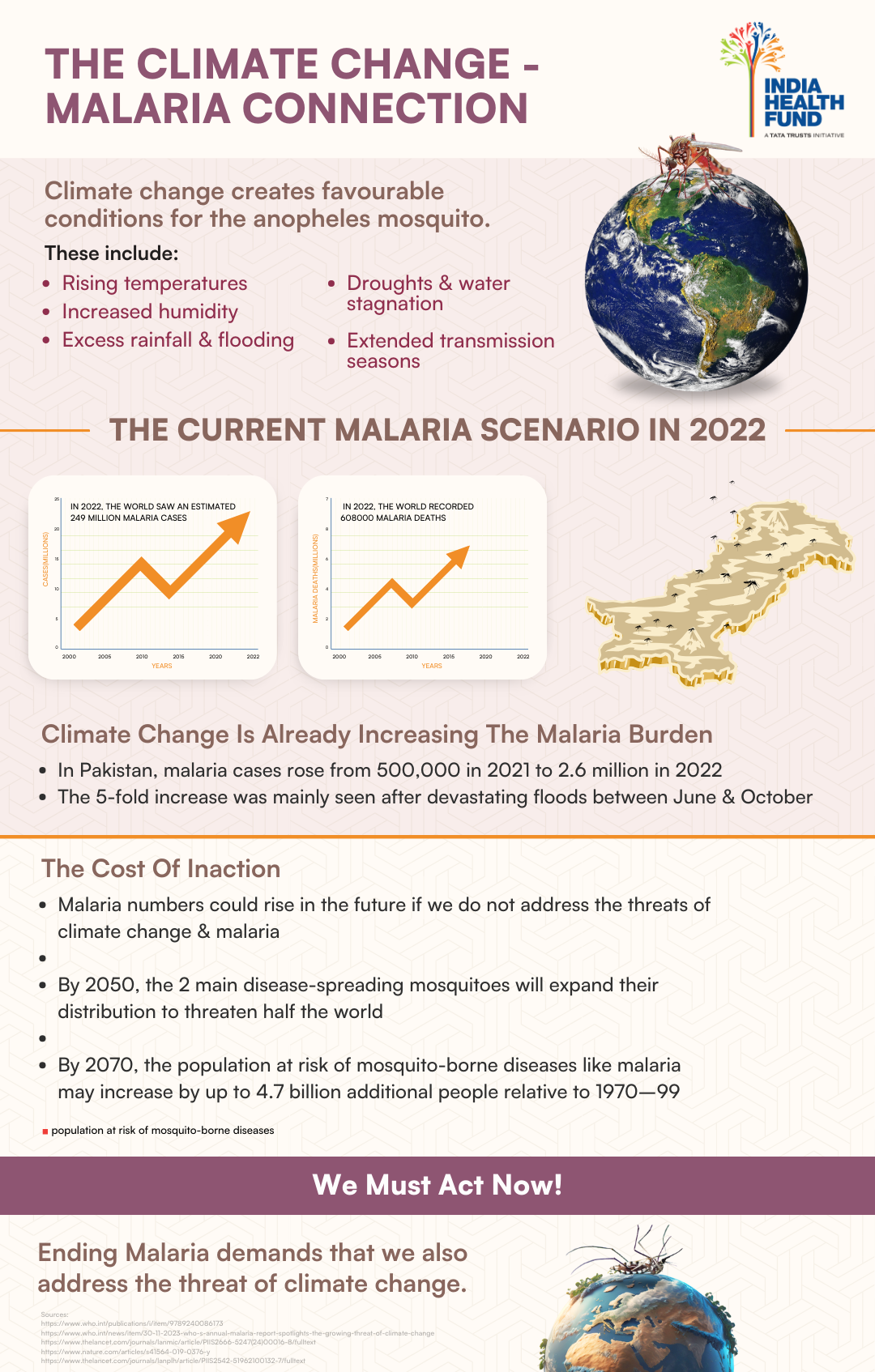


Malaria continues to impose a significant global burden, with approximately 249 million cases and 608,000 deaths reported in 2022, predominantly affecting vulnerable populations. Despite progress in reducing malaria incidence and mortality rates over the past two decades through interventions such as insecticide-treated bed nets, indoor residual spraying, and artemisinin-based combination therapies, the threat of climate change looms large. Rising temperatures and altered precipitation patterns create conducive environments for mosquito breeding and the spread of malaria parasites, leading to potential increases in transmission rates and geographic expansion of malaria-endemic areas. This underscores the urgent need for sustained efforts in malaria control and adaptation strategies to mitigate the impact of climate change on malaria transmission and prevent setbacks in global malaria elimination goals.

India Health Fund remains steadfast in its commitment to malaria elimination, supporting innovative solutions that address the evolving challenges posed by climate change. Through strategic investments, IHF fosters groundbreaking innovations such as AI-powered vector surveillance, which hold immense potential in enhancing malaria control efforts.
India Health Fund is registered as Confluence for Health Action and Transformation Foundation (CHATF), a Section 8
charitable company incorporated in India, supported by the Tata Trusts.